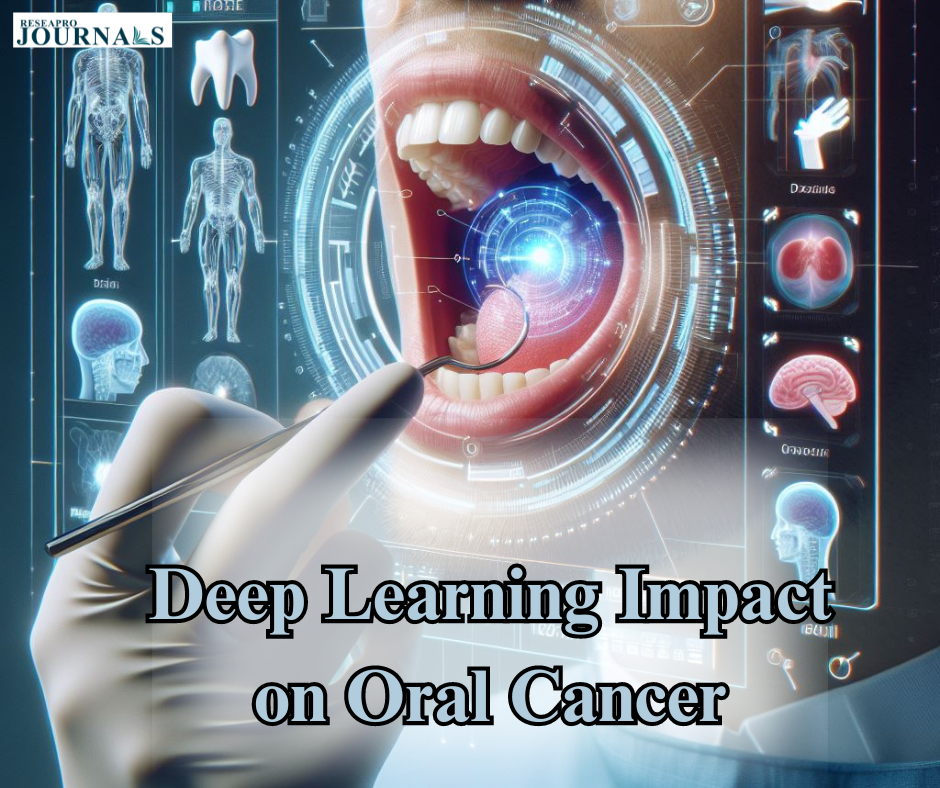
Deep learning, a subset of artificial intelligence, has gained attention in medical research, including its potential application in oral cancer detection and prognosis. This systematic review aims to evaluate the impact of deep learning techniques in the field of oral cancer.

Body:
Numerous studies have investigated the efficacy of deep learning algorithms in various aspects of oral cancer management, such as early detection from imaging modalities like computed tomography (CT) scans and magnetic resonance imaging (MRI), as well as histopathological analysis of tissue samples. These algorithms demonstrate promising results in accurately identifying cancerous lesions, distinguishing between benign and malignant tumors, and predicting patient outcomes based on histological features.
Conclusion:
Deep learning shows considerable potential in enhancing the diagnosis and prognosis of oral cancer. However, further validation and standardization are necessary to ensure its clinical utility. Collaborative efforts between clinicians, researchers, and technologists are crucial to harnessing the full benefits of deep learning in improving oral cancer care and patient outcomes.
